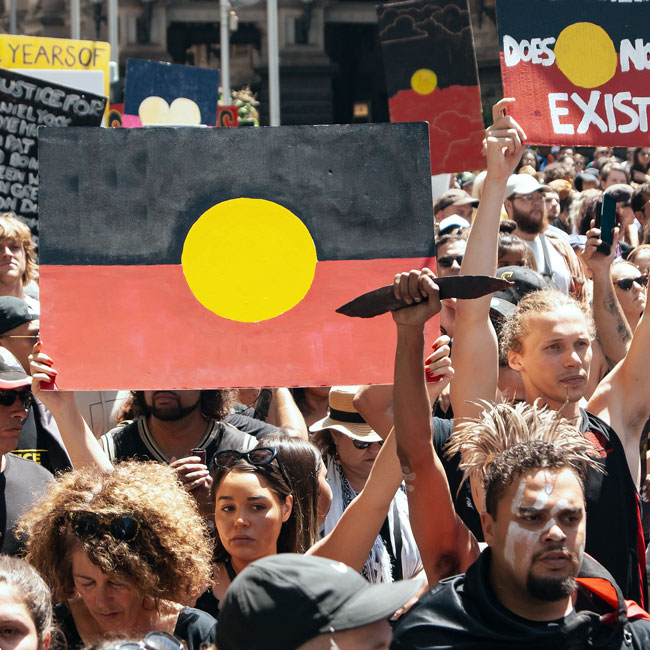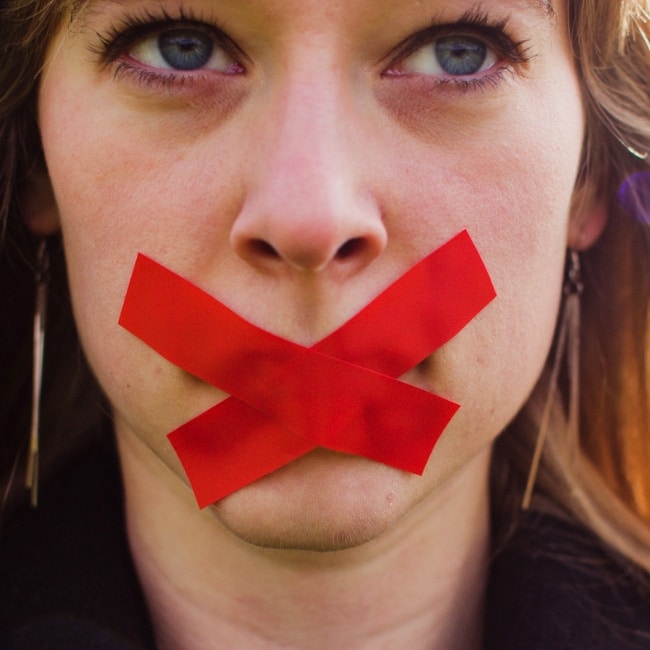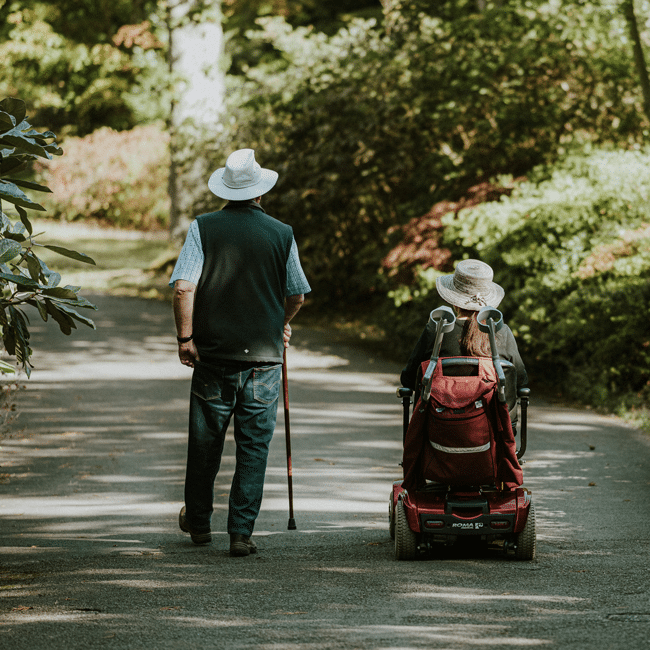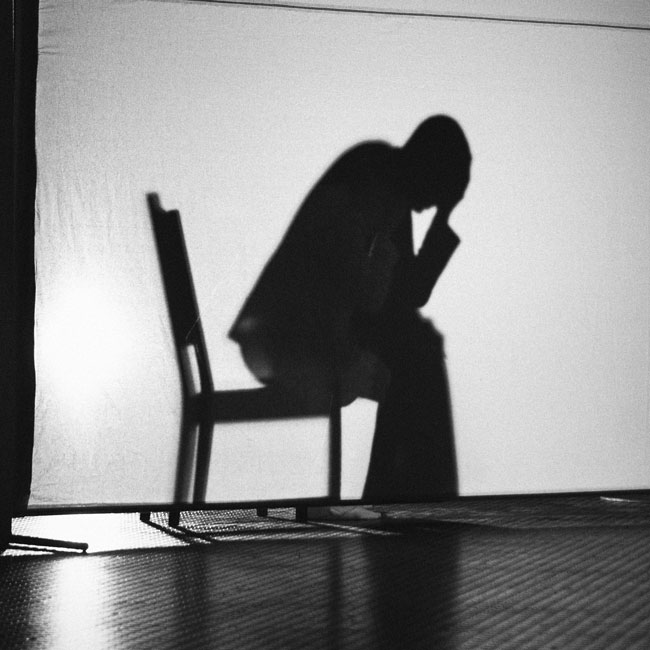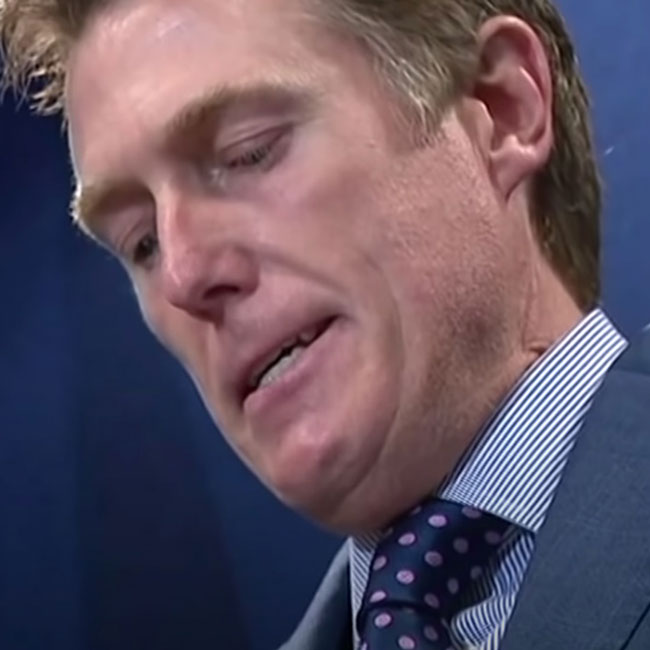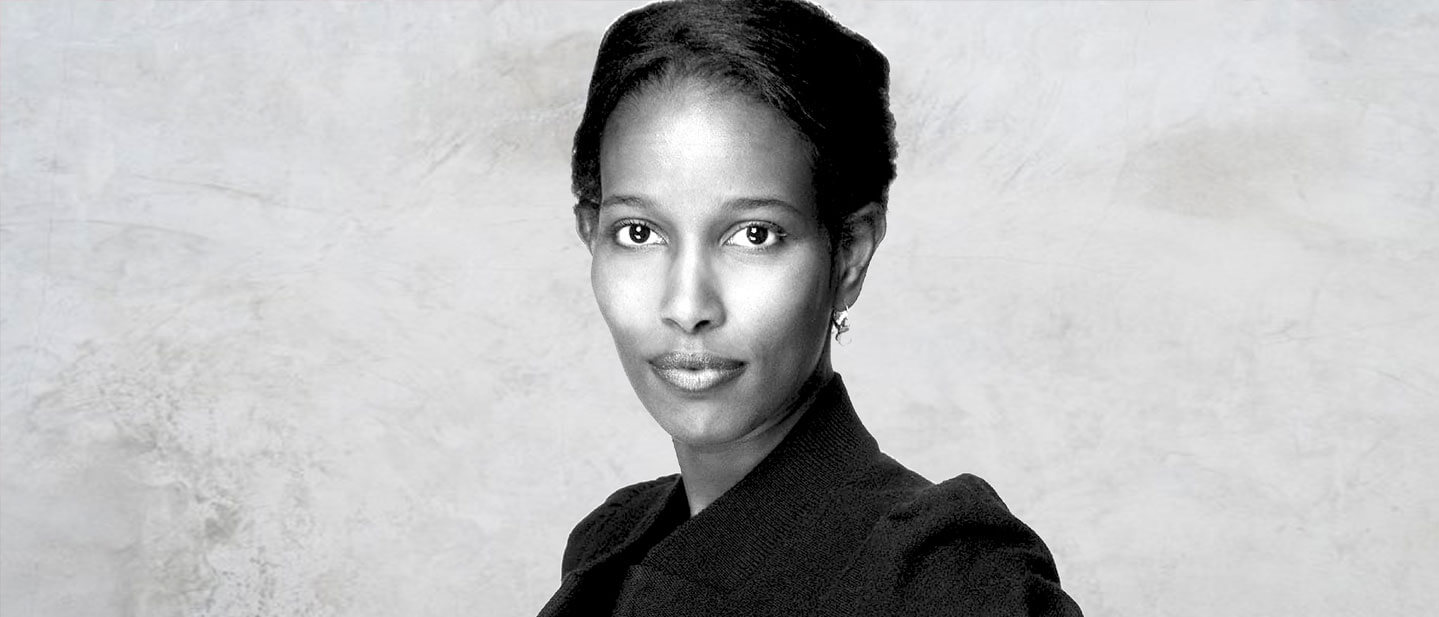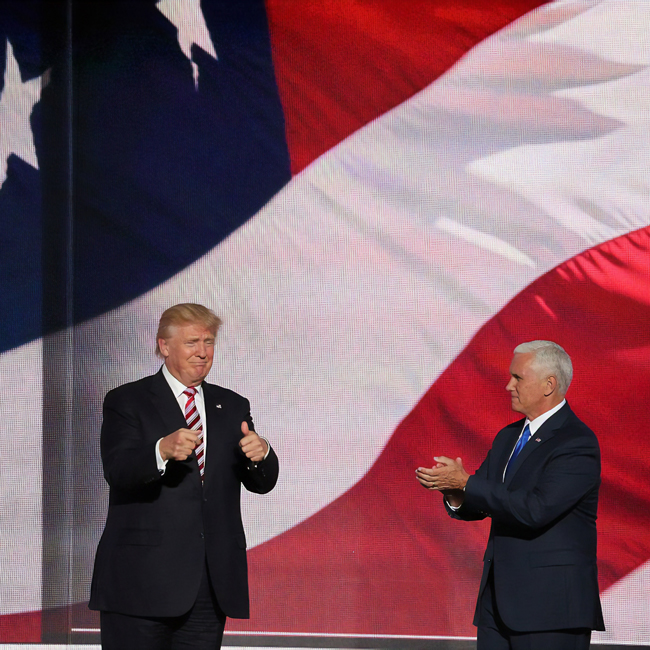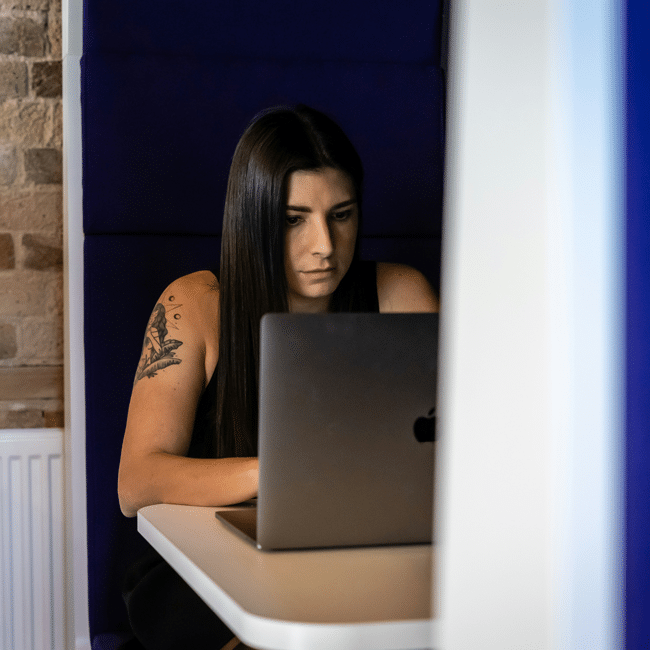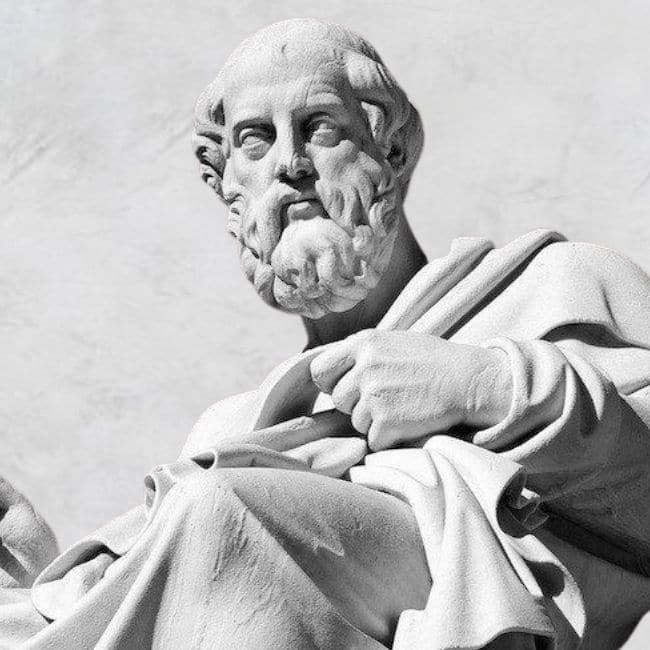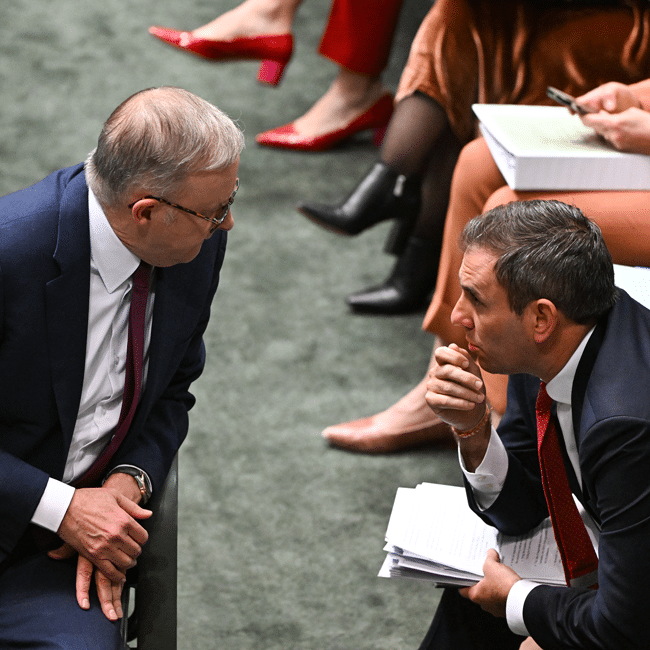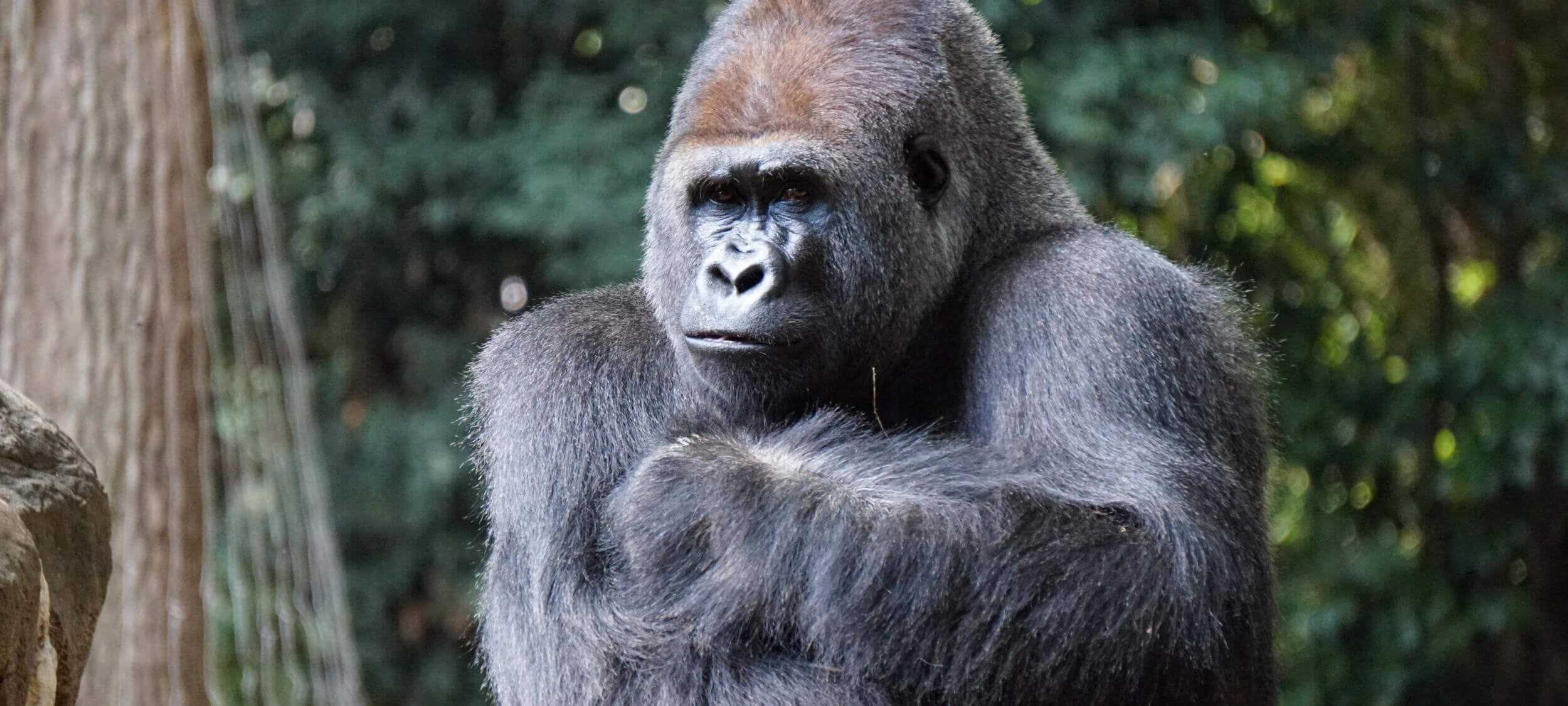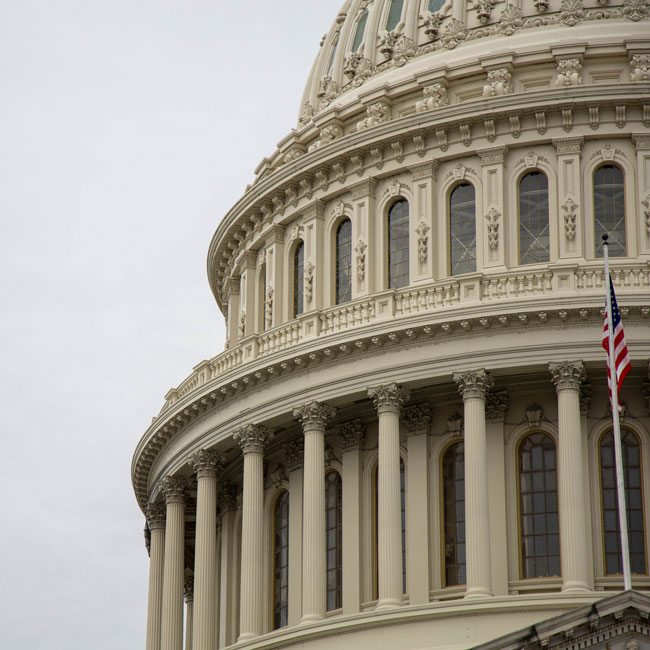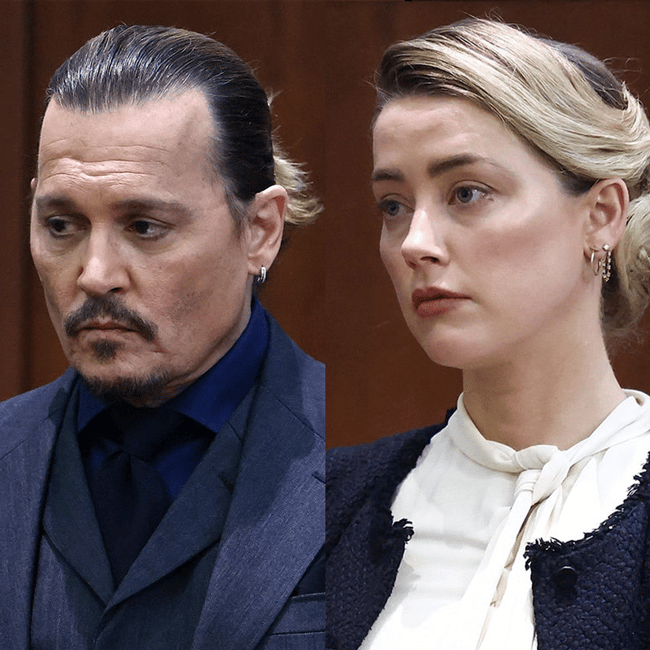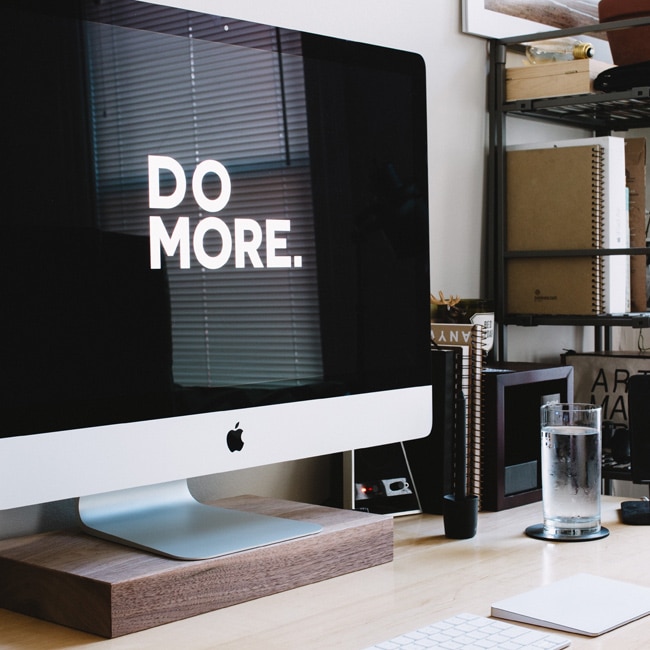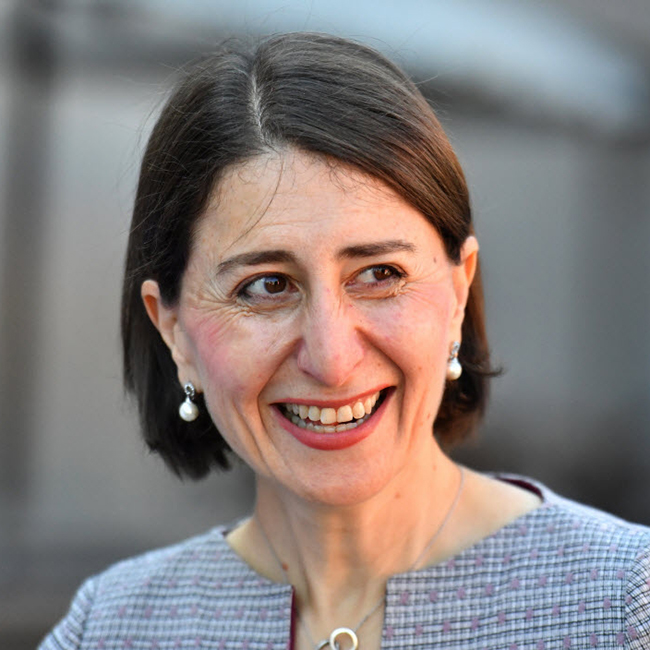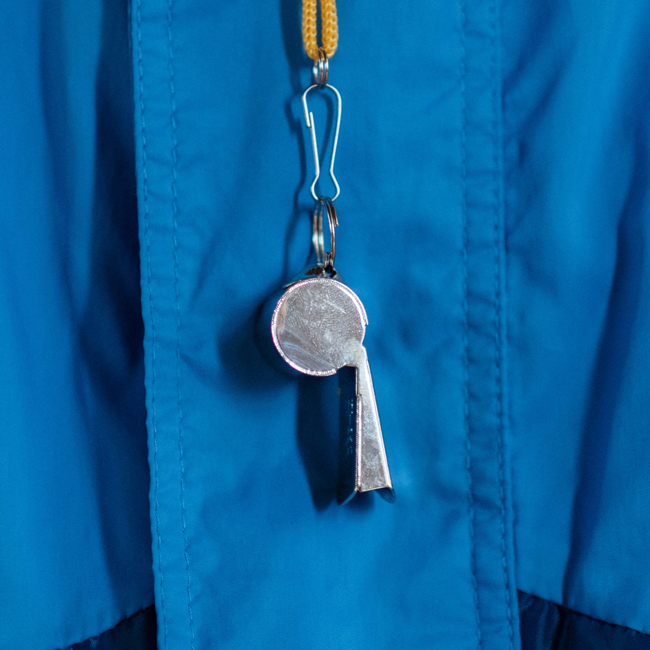Libertarianism and the limits of freedom

Libertarianism and the limits of freedom
Opinion + AnalysisPolitics + Human Rights
BY Joshua Pearl 20 JUL 2021
Libertarianism is the political philosophy that champions individual freedom. But does it really love freedom as much as it claims?
Governments interfere with our lives all the time. They punish us when we say things that they (or others) consider offensive. They make us save money we can only access if we reach a certain age. They engage police that can stop us in the street. They require us to inoculate against disease – even if it is against our wishes. And they demand we give away some of our salaries and assets (in the form of taxes), to be spent on things that may neither benefit nor be agreeable to us.
These are all fairly standard government interferences, even before we consider the more extreme restrictions that we have seen imposed throughout the COVID-19 pandemic.
Most political philosophies permit state interference, with some permitting quite a lot. Social contract theories, from Hobbes in the 17th century to Rawls in the 20th century, contend that citizens have consented either implicitly or explicitly, to give up certain freedoms, in exchange for protection of their remaining freedoms. However, not all political philosophies are as sanguine.
Libertarianism, which champions individual freedom, argues government interference is not only a pesky annoyance, but a violation of our fundamental rights. Libertarians contend that government interference is unjust even if intervention benefits the person being interfered with. Extreme libertarians would even support the right of a person to sell themselves into slavery – and would object to any government that seeks to prevent this.
Libertarianism has its roots in the works of the seventeenth and eighteenth-century liberal philosophers: John Locke, David Hume and Adam Smith. However, modern libertarians find much of their inspiration from Robert Nozick’s Anarchy, State and Utopia (1974). Nozick argues that individuals have strong self-ownership and property rights, rights that cannot be violated. Freedom, the core tenet of libertarianism, is the fundamental good to be affirmed and protected. On this view, we are all free (and equal) individuals, with the uninhibited right to make individual decisions with regard to our lives, our liberty, and the ownership of our property.
Libertarians, however are not anarchists. They do believe in the existence of the state. A libertarian state is one that performs the strictly limited roles of protecting citizens’ self-ownership and property rights and rectifying past transgressions of those rights.
Government’s role is to protect people’s freedom to choose happiness of a kind that is defined by each individual, not as dictated by others. If an individual wants to follow a particular god, that is their choice. If a person wants to buy a particular good or service on the free market, so let them. If a woman wants to marry multiple husbands, that is up to her.
For most right-libertarians, original property ownership (that is staking an ownership on unowned natural resources) is allowable, subject to the somewhat ambiguous Lockean proviso, that “enough and is good” is left for others. Nozick also asserted that when staking an ownership claim, no-one else should be made worse-off than they would otherwise be, which allows for significant variation in original property ownership. Left-libertarians, distinguished from right-libertarians by the very feature of original property ownership, claim everyone has a pro rata right to natural resources such as land, air and minerals.
Libertarianism’s absolute focus on individual freedom is attractive and makes for a consistent and simple political philosophy. It also has broad appeal, attracting strange ideological bedfellows.
Social progressives find attractive the social freedom associated with libertarianism. Governments have no right to punish an individual for taking recreational drugs; it is impermissible for the state to ban marriage between same sex couples; wrong for a country to wage a foreign war or conscript people into the army; and forbidden for government to ban, say, assisted dying.
Economic conservatives are attracted to the libertarian stance that it is wrong for government to take away assets in the form of an inheritance tax; impermissible for the state to impose an income tax for the purpose of redistribution. Indeed, the argument that government has no right to interfere in transactions between consenting adults, underpins the fundamental argument for many free market economists. Those on both the left and right are attracted to the argument that governments have no right to censor free speech.
However, if you think that libertarianism maximises freedom, then you would be wrong. One criticism of libertarianism is that it allows for scenarios which substantially limit freedom. Libertarianism prohibits anything but the very minimum level of taxation. This stance permits gross inequalities across wealth and income, and prohibits the levying of taxes required to fund the provision of state-run services.
As long as people are not interfered with, libertarianism finds it fair for children to be born into a subsistent existence, without access to education or basic healthcare. While these children may be able to do whatever they want without interference, their options and possibilities are severely limited. It is difficult to argue that these children are free in any meaningful sense.
Libertarianism also struggles to deal with negative externalities – the negative effects that individuals’ actions have on unrelated third parties. Companies (and individuals) tend to ignore costs which are imposed on other people. When this occurs, the net total cost to society of the pursuit of individual production and consumption choices, are typically negative.
Emblematic of this problem is climate change. I might enjoy all the benefits of taking a holiday to London, but I impose certain costs associated with green-house emissions that contribute to global warming, on other Australians. Adani’s shareholders and executives may enjoy the higher dividends and salaries from its pursuit of coal mining, but ignore the pollution costs they impose on future generations.
In such cases, libertarians, with their strong insistence of individual freedom, have very little constructive criticism to contribute to considerations regarding potential government intervention mechanisms. A further example concerns COVID-19 vaccination. Should citizens be free to choose whether they are vaccinated, despite the costs a failure to vaccinate imposes on other people? The libertarian position is that forcing someone to be vaccinated is unjust.
Perhaps the most incisive criticism of libertarianism though, is that paradoxically, libertarianism interferes too much.
Property acquisition typically involves a whole suite of historical injustices and the rectification of past injustice is likely to require a great deal of interference. If you are a card-carrying Silicon Valley billionaire libertarian, then you are aware (or at least you should be) that your worldly possessions are contingent upon the injustice of Europeans taking somebody else’s (native Americans’) private property.
Libertarian fairness, requires appropriate rectification. And arguing past injustices do not require rectification is arguing for something quite different to libertarian rules of justice. Most likely, that’s just arguing for self-interest.
Libertarianism has many attractive features and is likely to remain the political philosophy of choice for those who claim to love freedom. However, libertarian freedom is conditional. A world where libertarian rules of justice reign, may in fact result in a world that is not very free at all.
Ethics in your inbox.
Get the latest inspiration, intelligence, events & more.
By signing up you agree to our privacy policy
You might be interested in…
Opinion + Analysis
Business + Leadership, Politics + Human Rights
Do diversity initiatives undermine merit?
Opinion + Analysis
Business + Leadership, Politics + Human Rights
Should corporate Australia have a voice?
Big thinker
Politics + Human Rights, Relationships
Big Thinker: Mary Wollstonecraft
Opinion + Analysis
Politics + Human Rights
Time for Morrison’s ‘quiet Australians’ to roar
BY Joshua Pearl
Joshua Pearl is the head of Energy Transition at Iberdrola Australia. Josh has previously worked in government and political and corporate advisory. Josh studied economics and finance at the University of New South Wales and philosophy and economics at the London School of Economics.
What do we want from consent education?

What do we want from consent education?
Opinion + AnalysisPolitics + Human RightsRelationships
BY Georgia Fagan 11 MAY 2021
In mid-April this year a government-funded video was released which aimed to teach high-school aged Australians about sexual consent.
The video, which attempted to emphasise the importance of sexual consent by discussing the forced consumption of milkshakes, was widely criticised around the globe. It has since been removed from ‘The Good Society’ site, with secretary of the Department of Education Dr Michele Bruniges citing “community and stakeholder feedback” as reason for the action.
Widespread criticism of the video can be found online about the video’s sole use of metaphor to describe consent. Less present in the discussions is consensus on what a good consent education video would look like.
The underlying assumption in the video released by The Good Society is that issues of sexual consent can be managed by teaching adolescents that the rights of an individual are violated when an aggressor forces a ‘no’, or a ‘maybe’, into a ‘yes’. And, the video tells us, “that’s NOT GOOD!“.
Is it sufficient to tell adolescents to respect the rights of their peers in order to overcome issues of sexual violence? While rights may help us discuss what it is we want our societies to look like, they fail to assist us in getting others to care for, or value, the rights of others.
Sally Haslanger, Ford Professor of Philosophy and Women’s and Gender Studies at MIT (Massachusetts Institute of Technology) argues that actions are shaped by culture, and that cultures are effectively networks of social meanings which work in a variety of ways to shape our social practices. To change undesirable social practices, cultural change must also occur.
For example, successfully managing traffic is not just achieved by passing traffic laws or telling drivers that breaking the law is ‘not good’. Instead, Haslanger tells us that it requires inculcating “public norms, meanings and skills in drivers”. That is, we need a particular type of culture for traffic laws to adequately do what it is we want them to do. Applying this idea to sexual consent, we see that we are required to educate populations about why violating the preferences of our peers is indeed ‘not good’, after all.
Skirting around the issue fails to provide resources to move our culture to better recognise the deep injustice and harms of sexual violence.
Vague, euphemistic videos will likely fail to play even a minor role in transforming our current culture into one with fewer instances of sexual violence. This is due largely to the fact that Australia is comprised of social and political systems which fail to take the violence experienced by women and girls seriously.
Haslanger suggests that interventions such as revised legislation and moral condemnation will be inadequate when enforced onto populations whose values are incompatible with the goals of such interventions.
Attempting to address issues of sexual misconduct indirectly – as seen by The Good Society video – are likely to be unsuccessful in creating long term behavioural change. Skirting around the issue fails to provide resources to move our culture to better recognise the deep injustice and harms of sexual violence.
As Haslanger tells us, so long as we are a culture which has misogyny embedded into it, social practices will continue to develop that cause people to act in misogynistic ways. We are required to reshape our culture in a way that changes the value and importance of women.
So long as we are a culture which has misogyny embedded into it, social practices will continue to develop that cause people to act in misogynistic ways.
So, what will shift and transform embedded cultural practices? A better approach advocates educating audiences why consent is valuable, not just how to go about getting it. A population which fails to value the bodily autonomy and preferences of each of its members equally is not a population that will go about acquiring consent in successful and desirable ways.
Quick fix solutions such as ambiguously worded videos on matters of consent are likely to do very little for adolescents in a school system absent of a comprehensive sexual education, and where conversations on sexual conduct and interpersonal relationships remain marginalised.
We need to aim to create a generation of adolescents who are taught why sexual consent is important and why they should value the preferences of their peers. A culture which continues to keep sex ‘taboo’ by failing to explicitly discuss sexual relationships and the reasons why disrespecting bodily autonomy is “NOT GOOD!” will be one which fails to resolve its endemic misogyny and disregard for the lives of women and girls.
Ethics in your inbox.
Get the latest inspiration, intelligence, events & more.
By signing up you agree to our privacy policy
You might be interested in…
Opinion + Analysis
Health + Wellbeing, Relationships
Duties of care: How to find balance in the care you give
Opinion + Analysis
Business + Leadership, Relationships
Facing tough decisions around redundancies? Here are some things to consider
Opinion + Analysis
Health + Wellbeing, Politics + Human Rights, Relationships
There’s more than lives at stake in managing this pandemic
Opinion + Analysis
Politics + Human Rights, Society + Culture
When our possibilities seem to collapse
BY Georgia Fagan
Georgia has an academic and professional background in applied ethics, feminism and humanitarian aid. They are currently completing a Masters of Philosophy at the University of Sydney on the topic of gender equality and pragmatic feminist ethics. Georgia also holds a degree in Psychology and undertakes research on cross-cultural feminist initiatives in Bangladeshi refugee camps.
He said, she said: Investigating the Christian Porter Case

He said, she said: Investigating the Christian Porter Case
Opinion + AnalysisPolitics + Human Rights
BY Louise Richardson-Self 10 MAR 2021
On 4 March 2021 Attorney General Christian Porter identified himself as the unnamed Minister who had been accused of a 1988 rape in a letter sent to the Prime Minister and some senators.
He strenuously denies any wrongdoing and has refused to step down from his role.
ABC News reports that ‘the letter urges the Prime Minister to set up an independent parliamentary investigation into the matter’ — but should there be an investigation?
The Problem With Testimony
When it comes to accusations of sexual assault, it seems like the situation comes down to a clash of ‘testimony’ — she said, he said. But who is to be believed?
Testimony, to clarify, isn’t just any old speech act. Testimony is speech that is used as a declaration in support of a fact. “The sky is blue” is testimony; “I like strawberries” isn’t.
Generally, people are hesitant to accept testimony as good, or strong evidence for any sort of claim. This is not because testimony is always unreliable, but because we think that there are more reliable methods of attaining knowledge.
Other methods include direct experience (living through or witnessing something), material collection (looking for evidence to support the truth of a claim), or through the exercise of reason itself (for instance, by way of logic or deductive reasoning).
In this case, it seems like what would need to occur is a fact-finding mission which could add weight either to the testimony of either Porter or the alleged victim.
What is very surprising, then, is that only some people support such an investigation, while others have rejected the move as unnecessary, including Prime Minister Scott Morrison. These people deem Porter’s testimony credible. But should they?
Judging Credibility
It isn’t strange to find that people are willing to treat testimony as sufficient evidence for a claim. We often do. Testimony is used in trials. Every news report is testimony. The scientific truths we have learn from books or YouTube are testimony. You get the picture. We may think we are always sceptical of testimony, but we could hardly get by without it.
So, we do rely on testimony. Just not all testimony. When it comes to believing testimony, what we’re really doing is judging the speaker’s credibility. The question is thus: should we trust what a specific person says about a specific matter in a specific context?
The problem is that we’re actually not very good at working out which speakers are credible and which aren’t. Often we get it wrong. And sometimes we get it wrong because of implicit biases—biases about types of people, biases about institutions, and the sway of authority.
As philosopher Miranda Fricker has pointed out, when people do not receive the credibility they are due—whether because they receive too much (a credibility excess) or too little (a credibility deficit)—and the reason they do not receive it is because of such biases, then a testimonial injustice occurs.
“Being judged credible to some degree is being regarded as more credible than others, less credible than others, and equally credible as others,” explains philosopher José Medina.
In a she said, he said case, if we judge one person as credible, we’re also discrediting the other.
Fricker explains that testimonial injustice produces harms. First, there is a harm caused to the listener: because they didn’t believe testimony they should have, they failed to acquire some new knowledge, which is a kind of harm.
However, testimonial injustices also harms the speaker. When someone’s testimony is doubted without good reason, we disrespect them by doubting their ability to convey truth – which is part of what defines us as humans. This means testimonial injustices symbolically degrade us qua [as] human. Basically, to commit a testimonial injustice means we fail to treat people in a fundamentally respectful way. Instead, we treat them as less than fully human.
Is there a Credibility Deficit or Excess in Porter’s case?
Relevant to the issue of credibility attribution in the wake of a sexual assault allegations is the perception (and fear) shared by many that women lie about sexual assault.
In fact, approximately 95% of sexual assault allegations are true. This means it is highly improbable (but not impossible) that the alleged victim made a false claim.
It is not just stereotyping about lying and vindictive women that can interfere with correct credibility attribution. As Treasurer Josh Frydenberg has reminded us, Porter “is entitled to the presumption of innocence, as any citizen in this country is entitled.”
This commitment we share to presume innocence unless or until guilt is proven is a significant bulwark of our ethico-legal value system.
However, in a case of “she said, he said”, his entitlement to the presumption of innocence automatically generates the assumption that the victim is lying. Given that false rape allegations are so infrequent, the presumption of innocence unfairly undermines the credibility of the complainant almost every time.
This type of testimonial injustice may seem unavoidable because we cannot give up the presumption of innocence; it is too important. However, the insistence that Porter receive the presumption of innocence rather than insisting we believe the statistically likely allegations against him may point to another problem with the way assign credibility.
As philosopher Kate Manne has observed, particularly when it comes to allegations made by women of sexual assault by men, the accused are often received with himpathy—that is, they receive a greater outpouring of sympathy and concern over the complainants. She explains, “if someone sympathizes with the [accused] initially…he will come to figure as the victim of the story. And a victim narrative needs a villain…”
So here’s the rub.
If a great many people in a society share the view that women lie, then they tacitly see complainants as uncredible.
And if a great many people in a society feel sorry for certain men who are accused of sexual assault, then they are likely to side with the accused. In turn, those who are accused of sexual assault (usually, men) will automatically receive a credibility excess.
Is this what has happened in Porter’s case? Note that an investigation could lend credibility to either party’s claims. This is where the police would normally step in.
Didn’t the Police Investigate and Exonerate Porter?
You would be forgiven for thinking that NSW Police had conducted a thorough investigation and had cleared Porter’s name judging by the way some powerful parliamentary figures have responded to Porter’s case.
For example, in his dismissal of calls for an independent investigation, Scott Morrison said that it “would say the rule of law and our police are not competent to deal with these issues.” Likewise, Treasurer Josh Frydenberg said: “The police are the only body that are authorised to deal with such serious criminal matters.” Nationals Senator Susan MacDonald also opposed the investigation, saying: “We have a system of justice in this country [and] a police service that is well resourced and the most capable of understanding whether or not evidence needs to go to trial — and they have closed the matter.”
Case closed. This must mean that there’s no evidence and that an independent inquiry would be pointless, right?
Not quite. NSW Police stated that there was “insufficient admissible evidence” to proceed with an investigation. They did not say that there was no evidence of misconduct. Moreover, the issue for criminal proceedings is that the alleged victim did not make a formal statement before she took her own life.
In other words, the complainant’s testimony does not get to count as evidence because, technically, there is no testimony on the record.
Preventing Testimonial Injustice
Since the alleged victim had not made a formal statement to Police at the time of her death, the call for an investigation into Porter’s conduct can be seen as a means of ensuring Porter does not receive a testimonial credibility excess and the complainant a testimonial credibility deficit.
To stand by Porter’s testimony in a context where it is widely – and falsely – believed that women make false rape allegations, and where the police are seen as the only body capable of exercising an investigation (when in fact they are not), would be to commit a testimonial injustice.
As former Liberal staffer and lawyer Dhanya Mani says, “The fact that the police are not pursuing the matter for practical reasons does not preclude or prevent the Prime Minister from undertaking an inquiry into a very serious allegation… And that inquiry will either exonerate Christian Porter and prove his innocence or it will prove otherwise.”
It is important to understand that an independent investigation is not bound by the exact same evidentiary rules as are the police and courts. It may be possible for others to testify on her behalf. Other evidence which is inadmissible in court may be admissible here. An independent investigation at least offers the possibility that the complainant’s testimony will get a fair hearing.
Also worth noting is where the presumption of innocence would end. For a crime, guilt should be proved beyond a reasonable doubt. For civil cases, that standard is “on the balance of probabilities”. What standard should an independent investigation use? I would suggest the latter, precisely because testimony is likely to be all the evidence there is.
To prevent a testimonial injustice—attributing too much credibility, or too little, to someone undeserving of it—these allegations must be investigated.
Ethics in your inbox.
Get the latest inspiration, intelligence, events & more.
By signing up you agree to our privacy policy
You might be interested in…
Big thinker
Politics + Human Rights
Big Thinker: Judith Jarvis Thomson
Explainer
Politics + Human Rights
Ethics Explainer: Deontology
Explainer
Politics + Human Rights
Ethics Explainer: Ethics, morality & law
Big thinker
Politics + Human Rights
Big Thinker: Ayaan Hirsi Ali
BY Louise Richardson-Self
Louise Richardson-Self is a Lecturer in Philosophy and Gender Studies at the University of Tasmania and an Australian Research Council Discovery Early Career Researcher Awardee (2019). Her current research focuses are the problem online hate speech, and the tension between LGBT+ non-discrimination and religious freedom. She is the author of Justifying Same-Sex Marriage: A Philosophical Investigation (2015) and her second book, Hate Speech Against Women Online: Concepts and Countermeasures is due for publication in 2021.
Big Thinker: Aristotle

It is hard to overstate the impact that Aristotle (384 BCE—322 BCE) has had on Western philosophy.
He, along with his teacher Plato, set the tone for over two millennia of philosophical enquiry, with much subsequent work either building on or refuting his ideas.
His influence on philosophy has been unparalleled for over two thousand years, in fields including logic, metaphysics, science, ethics and politics.
Aristotle was born in the 4th century BC in Thrace, in the north of Greece. At around 18 years of age he moved south to Athens, the capital of philosophical thought, to study under Plato at his famous Academy. He spent around two decades there, absorbing – but not always agreeing with – Plato and his disciples.
After Plato’s death, he departed Athens and landed a gig tutoring the teenage Alexander of Macedon – soon to be Alexander the Great. However, it appears Aristotle summarily failed to imbue the budding general with a taste for either philosophy or ethics.
After Alexander was appointed regent of Macedon at the age of 16, Aristotle returned to Athens, where he established the Lyceum, his own philosophical school where he taught and wrote on a startling array of topics.
His followers became known as peripatetics, after the Greek word for “walking”, due to the walkways that surrounded the school and Aristotle’s reputed tendency to give lectures on the move.
Ethics and Eudaimonia
One of the areas of lasting impact was Aristotle’s work on ethics and politics, which he considered to be intimately related subjects (much to the surprise of modern folk).
His ethical theory was based on the idea that each of us ultimately seeks a concept he called eudaimonia, often translated as “happiness” but better rendered as “flourishing” or “wellbeing.”
The basic idea is that every (non-frivolous) thing we do is directed towards achieving some end. For example, you might fetch an apple from the fruit bowl to sate your hunger. But it doesn’t stop there. You might sate your hunger to promote your health, and you might promote your health because it enables you to do other things that you want to do – and so on.
Aristotle argued that if you follow this chain of ends all the way down, you’ll eventually reach something that you do because it’s an ‘end in itself’, not because it leads to some other end. He argued that the enlightened individual would inevitably arrive at the single ultimate end or good: eudaimonia.
Aristotle’s ethical theory is more like a theory of enlightened prudence or ‘practical wisdom’, which he called phronesis, that helps guide people towards achieving eudaimonia.
This sets Aristotle’s ethics apart from many modern ethical theories, such as utilitarianism, in that he’s not calling for us to maximise happiness or eudaimonia for all people but only helping us to live a good life.
Compared to more modern ethical theories, he is also less focused on explicit issues of preventing harm or preventing injustice than on the cultivation of good people.
Whereas the primary question guiding many ethical theories is ‘what should we do?’, Aristotle’s main concern is ‘how should we live?’.
Virtues and Friendship
This doesn’t mean Aristotle disregarded how we ought to behave towards others. Indeed, he argued that the best way to achieve eudaimonia was to embody certain virtues, such as honesty, courage and charity, which encourage us to be good to other people.
Each of these virtues occupies a “golden mean” between two extremes, which were considered vices. So too little courage was cowardice, and too much was recklessness, but just enough would lead to decisions that would promote eudaimonia.
He also lent us a useful term, akrasia, which means a kind of weakness of will, whereby people do the wrong thing not due to embodying vices, but by some inability to resist temptation.
We have all likely experienced akrasia from time to time, such as when we devour that last cookie or lie to escape blame, which we know is not conducive to our health or ethical flourishing.
While Aristotle’s “virtue ethics” fell out of favour for many centuries, it has enjoyed a resurgence since the mid-20th century and has a growing following today.
Aristotle also argued that one of the benefits of being a virtuous person was the kinds of friendships you could form.
The second reason is because you think they’re fun to be around, such as when two people simply enjoy each other’s company or enjoy shared activities like watching sport or playing board games, but don’t have any deeper connection when those activities are absent.
It’s the third type of friendship that Aristotle thought was the highest, which is when you like someone because they are a good person.
This is a mutual recognition of virtuous character, and you have reciprocal good will, where you genuinely care for them – even love them – and want the best for them. Aristotle argued that by cultivating virtues, and seeking out other virtuous people, we could form the strongest and most nourishing friendships.
Interestingly, modern science has vindicated the idea that one of the most important factors in living a happy and fulfilled life is the number of genuine and deep relationships one has, particularly with friends whom they care for and who care for them in return.
Artistotle on Politics
Aristotle’s political theory concerned how to structure a society in such a way that it enabled all its citizens to achieve eudaimonia.
His ancient Greek predilections – as well as the influence of Plato, who believed society should be ruled by ‘Philosopher Kings’ – are visible in his contempt for democracy in favour of rule by an enlightened aristocracy or monarchy.
However, Aristotle disagreed with his mentor in one important respect: Aristotle favoured private property, which he said promoted personal responsibility and fostered a kind of meritocracy that treated great achievers as being more morally worthy than the ‘lazy’.
The breadth, sophistication and influence of Aristotle’s thinking is formidable, especially considering that we only have access to 31 of the 200+ treatises that he wrote during his lifetime.
Tragically, the rest were lost in antiquity. While much of Aristotle’s philosophy is contested today given developments in logic and science over the last few centuries, arguably many of these developments were built on or were inspired by his work.
Ethics in your inbox.
Get the latest inspiration, intelligence, events & more.
By signing up you agree to our privacy policy
You might be interested in…
Opinion + Analysis
Relationships
Narcissists aren’t born, they’re made
Opinion + Analysis
Business + Leadership, Politics + Human Rights
Can philosophy help us when it comes to defining tax fairness?
Opinion + Analysis
Health + Wellbeing, Relationships, Science + Technology
How to put a price on a life – explaining Quality-Adjusted Life Years (QALY)
Opinion + Analysis
Business + Leadership, Politics + Human Rights
Do diversity initiatives undermine merit?
BY Dr Tim Dean
Dr Tim Dean is Philosopher in Residence at The Ethics Centre and author of How We Became Human: And Why We Need to Change.
Who's to blame for Facebook’s news ban?

Who’s to blame for Facebook’s news ban?
Opinion + AnalysisPolitics + Human RightsScience + Technology
BY Matthew Beard 25 FEB 2021
News will soon return to Facebook, with the social media giant coming to an agreement with the Australian government. The deal means Facebook won’t be immediately subject to the News Media Bargaining Code, so long as it can strike enough private deals with media companies.
Facebook now has two months to mediate before the government gets involved in arbitration. Most notably, Facebook have held onto their right to strip news from the platform to avoid being forced into a negotiation.
Within a few days, your feed will return to normal, though media companies will soon be getting a better share of the profits. It would be easy to put this whole episode behind us, but there are some things that are worth dwelling on – especially if you don’t work in the media, or at a social platform but are, like most of us, a regular citizen and consumer of news. Because when we look closely at how this whole scenario came about, it’s because we’ve largely been forgotten in the process.
Announcing Facebook’s sudden ban on Australian news content last week, William Easton, Managing Director of Facebook Australia & New Zealand wrote a blog post outlining the companies’ reasons. Whilst he made a number of arguments (and you should read them for yourself), one of the stronger claims he makes is that Facebook, unlike Google Search, does not show any content that the publishers did not voluntarily put there. He writes:
“We understand many will ask why the platforms may respond differently. The answer is because our platforms have fundamentally different relationships with news. Google Search is inextricably intertwined with news and publishers do not voluntarily provide their content. On the other hand, publishers willingly choose to post news on Facebook, as it allows them to sell more subscriptions, grow their audiences and increase advertising revenue.”
The crux of the argument is this. Simply by existing online, a news story can be surfaced by Google Search. And when it is surfaced, a whole bunch of Google tools – previews, summaries from Google Home, one-line snippets and headlines – give you a watered-down version of the news article you search for. They give you the bare minimum info in an often-helpful way, but that means you never click the site or read the story, which means no advertising revenue or way of knowing the article was actually read.
But Facebook is different – at least, according to Facebook. Unless news media upload their stories to Facebook, which they do by choice, users won’t see news content on Facebook. And for this reason, treating Facebook and Google as analogous seems unfair.
Now, Facebook’s claims aren’t strictly true – until last week, we could see headlines, a preview of the article and an image from a news story posted on Facebook regardless of who posted it there. And that headline, image and snippet are free content for Facebook. That’s more or less the same as what Facebook says Google do: repurposing news content that can be viewed without ever having to leave the platform.
However, these link previews are nowhere near as comprehensive as what Google Search does to serve up their own version of news stories for the company’s own purpose and profit. Most of the news content you see on Facebook is there because it was uploaded there by media companies – who often design video or visual content explicitly to be uploaded to Facebook and to reach their audience.
However, on a deeper level, there seem to be more similarities between Google and Facebook than the latter wants to admit, because the size and audience base Facebook possesses makes it more-or-less essential for media organisations to have a presence there. In a sense, the decision to have a strategy on Facebook is ‘voluntary’, but it’s voluntary in the same way that it’s voluntary for people to own an attention-guzzling, data sucking smartphone. We might not like living with it, but we can’t afford to live without it. Like inviting your boss to your wedding, it’s voluntary, but only because the other options are worse.
Facebook would likely claim innocence of this. Can they really be blamed for having such an engaging, effective platform? If news publishers feel obligated to use Facebook or fall behind their competitors that’s not something Facebook should feel bad about or be punished for. If, as Facebook argue, publishers use them because they get huge value from doing so, it does seem genuinely voluntary – desirable, even.
Even if this is true, there are two complications here. First, if news media are seriously reliant on Facebook, it’s because Facebook deliberately cultivated that. For example, five years ago Facebook was a leading voice behind the ‘pivot to video’, where publishers started to invest heavily in developing video content. Many news outlets drastically reduced writing staff and investment in the written word, instead focussing on visual content.
Three years later, we learned that Facebook had totally overstated the value of video – the pivot to video, which served Facebook’s interests, was based on a self-serving deception. This isn’t the stuff of voluntary, consensual relationships.
Let’s give Facebook a little benefit of the doubt though. Let’s say they didn’t deliberately cultivate the media’s reliance on their platform. Still, it doesn’t follow obviously from this that they have no responsibility to the media for that reliance. Responsibility doesn’t always come with a sign-up sheet, as technology companies should know all too well.
French theorist Paul Virilio wrote that “When you invent the ship, you also invent the shipwreck; when you invent the plane you also invent the plane crash; and when you invent electricity, you invent electrocution.” Whilst Virilio had in mind technology’s dualistic nature, modern work in the ethics of technology invites us to interpret this another way.
If inventing a ship also invents shipwrecks, it might be up to you to find ways to stop people from drowning.
Technology companies – Facebook included – have wrung many a hand talking about the ‘unintended consequences’ of their design and accepting responsibility for them. In fact, speaking before a US Congress Committee, Mark Zuckerberg himself conceded as much, saying:
“It’s clear now that we didn’t do enough to prevent these tools from being used for harm, as well. And that goes for fake news, for foreign interference in elections, and hate speech, as well as developers and data privacy. We didn’t take a broad enough view of our responsibility, and that was a big mistake. And it was my mistake. And I’m sorry. I started Facebook, I run it, and I’m responsible for what happens here.”
It seems unclear why Facebook recognised their responsibility in one case, but seem to be denying it in another. Perhaps the news media are not reliant – or used by – Facebook in the same way as they are Google, but it’s not clear this goes far enough to free Facebook of responsibility.
At the same time, we should not go too far the other way, denying the news media any role in the current situation. The emergence of Facebook as a lucrative platform seems to have led the media to a Faustian pact – selling their soul for clicks, profit and longevity. In 2021 it seems tired to talk about how the media’s approach to news – demanding virality, speed, shareability – are a direct result of their reliance on platforms like Facebook.
The fourth estate – whose work relies on them serving the public interest – adopted a technological platform and in so doing, adopted its values as their own: values that served their own interests and those of Facebook rather than ours. For the media to now lament Facebook’s decision as anti-democratic denies the media’s own blameworthiness for what we’re witnessing.
But the big reveal is this: we can sketch out all the reasons why Facebook or the media might have the more reasonable claim here, or why they share responsibility for what went down, but in doing so, we miss the point. This shouldn’t be thought of as a beef between two industries, each of whom has good reasons to defend their patch.
What needs to be defended is us: the community whose functioning and flourishing depends on these groups figuring themselves out.
Facebook, like the other tech giants, have an extraordinary level of power and influence. So too do the media. Typically, we don’t to allow institutions to hold that kind of power without expecting something in return: a contribution to the common good. This understanding – that powerful institutions hold their power with the permission of a community they deliver value to – is known as a social license.
Unfortunately, Facebook have managed to accrue their power without needing a social license. All power, no permission.
This is in contrast to the news media, whose powers aren’t just determined by their users and market share, but by the special role we afford them in our democracy, the trust and status we afford their work isn’t a freebie: it needs to be earned. And the way it’s earned is by using that power in the interests of the community – ensuring we’re well-informed and able to make the decisions citizens need to make.
The media – now in a position to bargain with Facebook – have a choice to make. They can choose to negotiate in ways that make the most business sense for them, or they can choose to think about what arrangements will best serve the democracy that they, as the ‘fourth estate’, are meant to defend. However, at the very least they know that the latter is expected of them – even if the track record of many news publishers gives us reason to doubt.
Unfortunately, they’re negotiating with a company whose only logic is that of a private company. Facebook have enormous power, but unlike the media, they don’t have analogous mechanisms – formal or informal – to ensure they serve the community. And it’s not clear they need it to survive. Their product is ubiquitous, potentially addictive and – at least on the surface – free. They don’t need to be trusted because what they’re selling is so desirable.
This generates an ethical asymmetry. Facebook seem to have a different set of rules to the media. Imagine, for a moment, if the media chose to stop reporting for a fortnight to protest a new law. The rightful outrage we would feel as a community would be palpable. It would be nearly unforgivable. And yet we do not hold Facebook to the same standards. And yet, perhaps at this point, they’ve made themselves almost as influential.
There’s a lot that needs to happen to steady the ship – and one of the most frustrating things about it is that as individuals, there isn’t a lot we can do. But what we can do is use the actual license we have with Facebook in place of a social license.
If we don’t like the way a news organisation conducts themselves, we cancel our subscriptions; we change the channel. If you want to help hold technology companies to account, you need to let your account to the talking. Denying your data is the best weapon you’ve got. It might be time to think about using it – and if not, under what circumstances you might.
This project is supported by the Copyright Agency’s Cultural Fund.
Ethics in your inbox.
Get the latest inspiration, intelligence, events & more.
By signing up you agree to our privacy policy
You might be interested in…
Big thinker
Science + Technology
Big Thinker: Matthew Liao
Opinion + Analysis
Science + Technology
How will we teach the robots to behave themselves?
Opinion + Analysis
Science + Technology, Health + Wellbeing
Does your therapy bot really care about you? The risks of offloading emotional work to machines
Opinion + Analysis
Politics + Human Rights, Relationships
Do Australia’s adoption policies act in the best interests of children?
BY Matthew Beard
Matt is a moral philosopher with a background in applied and military ethics. In 2016, Matt won the Australasian Association of Philosophy prize for media engagement. Formerly a fellow at The Ethics Centre, Matt is currently host on ABC’s Short & Curly podcast and the Vincent Fairfax Fellowship Program Director.
Tim Soutphommasane on free speech, nationalism and civil society

Tim Soutphommasane on free speech, nationalism and civil society
Opinion + AnalysisBusiness + LeadershipPolitics + Human RightsRelationships
BY The Ethics Centre 18 FEB 2021
We believe conversations matter. So when we had the opportunity to chat with Tim Soutphommasane we leapt at the chance to explore his ideas of a civil society. Tim is an academic, political theorist and human rights activist. A former public servant, he was Australia’s Race Discrimination Commissioner at the Australian Human Rights Commission from 2013 – 2018 and has been a guest speaker at the Festival of Dangerous Ideas. Now a professor at Sydney University, he shared with The Ethics Centre his thoughts on the role of the media, free speech, racism and national values.
What role should the media play in supporting a civil society?
The media is one place where our common life as a society comes into being. It helps project to us our common identity and traditions. But ideally media should permit multiple voices, rather than amplify only the voices of the powerful. When it is dominated by certain interests, it can destroy rather than empower civil society.
How should a civil society reckon with the historical injustices it benefits from today?
A mature society should be able to make sense of history, without resorting to distortion. Yet all societies are built on myths and traditions, so it’s not easy to achieve a reckoning with historical injustice. But, ultimately, a mature society should be able to take pride in its achievements and be critical of its failings – all while understanding it may be the beneficiary of past misdeeds, and that it may need to make amends in some way.
Should a civil society protect some level of intolerance or bigotry?
It’s important that society has the freedom to debate ideas, and to challenge received wisdom. But no freedom is ever absolute. We should be able to hold bigotry and intolerance to account when it does harm, including when it harms the ability of fellow citizens to exercise their individual freedoms.
What do you think we can do to prevent society from becoming a ‘tyranny of the majority’?
We need to ensure that we have more diverse voices represented in our institutions – whether it’s politics, government, business or media.
What is the right balance between free speech and censorship in a civil society?
Rights will always need to be balanced. We should be careful, though, to distinguish between censorship and holding others to account for harm. Too often, when people call out harmful speech, it can quickly be labelled censorship. In a society that values freedom, we naturally have an instinctive aversion to censorship.
How can a society support more constructive disagreement?
Through practice. We get better at everything through practice. Today, though, we seem to have less space or time to have constructive or civil disagreements.
What is one value you consider to be an ‘Australian value’?
Equality, or egalitarianism. As with any value, it’s contested. But it continues to resonate with many Australians.
Do you believe there’s a ‘grand narrative’ that Australians share?
I think a national identity and culture helps to provide meaning to civic values. What democracy means in Australia, for instance, will be different to what it means in Germany or the United States. There are nuances that bear the imprint of history. At the same time, a national identity and culture will never be frozen in time and will itself be the subject of contest.
And finally, what’s the one thing you’d encourage everyone to commit to in 2021?
Talk to strangers more.
To read more from Tim on civil society, check out his latest article here.
Tim Soutphommasane is a political theorist and Professor in the School of Social and Political Sciences, The University of Sydney, where he is also Director, Culture Strategy. From 2013 to 2018 he was Race Discrimination Commissioner at the Australian Human Rights Commission. He is the author of five books, including The Virtuous Citizen (2012) and most recently, On Hate (2019).
This project is supported by the Copyright Agency’s Cultural Fund.
Ethics in your inbox.
Get the latest inspiration, intelligence, events & more.
By signing up you agree to our privacy policy
You might be interested in…
Opinion + Analysis
Politics + Human Rights
Trump and tyrannicide: Can political violence ever be justified?
Explainer
Relationships
Ethics Explainer: Akrasia
Opinion + Analysis
Politics + Human Rights, Relationships
Why we should be teaching our kids to protest
Big thinker
Relationships
Big Thinker: Plato
Join our newsletter
BY The Ethics Centre
The Ethics Centre is a not-for-profit organisation developing innovative programs, services and experiences, designed to bring ethics to the centre of professional and personal life.
Settler rage and our inherited national guilt

Settler rage and our inherited national guilt
Opinion + AnalysisPolitics + Human Rights
BY Sarah Maddison 21 JAN 2021
Professor Marcia Langton offers a distinctive term for settler-Australian racism towards Aboriginal and Torres Strait Islander peoples. She calls it the ‘settler mentality’. In her FODI Digital lecture Langton suggests that the experience of living unjustly on stolen Indigenous lands has produced in settler Australians a ‘peculiar hatred’ expressed through ‘settler rage against the people with whom they will not treat.’
While Langton observes the manifold evidence of ‘classical, formal racism’, she maintains that the underlying problem in Australia is ‘a settler population that cannot come to terms with its Indigenous population.’ Here, Langton touches upon a long running debate among scholars seeking to understand the ongoing conflict in Indigenous-settler relations. For some, race—and racism—are the primary lens for understanding both historical and contemporary injustice.
On this view, colonialism is in service to racism, enabling a white supremacist nation to take root on this continent. There is an abundance of evidence to support that claim, for example in the history of eugenicist practices in Australia including the ‘degrees of blood’ that for decades were used to justify the separation Aboriginal and Torres Strait Islander children from their families.
But for me there has always been more weight to support the counter view expressed by Langton.
Racism is real, certainly, but it operates in service to colonialism.
Colonialism cares less about the skin colour of the peoples it dispossesses and far more about accessing and controlling their land. It is in pursuit of land and the resources in and of that land that colonisers everywhere have committed atrocities against Indigenous peoples.
Australia is no exception. It is colonisation and the subsequent failure to negotiate treaties with First Nations on this continent that give rise to the settler state’s moral and legal illegitimacy. Colonisation is violent—no people anywhere in the world have been dispossessed of their land peacefully, and again, Australia is no exception.
Despite the state’s steadfast refusal to properly acknowledge this history, the evidence of over a century of frontier warfare is no secret. It never has been.
In her address, Langton mentions Australian historian Henry Reynolds’ book, This Whispering in Our Hearts, about those who recognised the injustices being perpetrated and were prepared to contest the violence of colonisation.
Langton points out that these settlers were well aware that they had ‘committed a monstrous crime’ and suggests that the criminality of the settler has produced in them a trauma similar to the kind that the German population had to deal with in the wake of the horrors of World War II. In making this comparison Langton references the German academic and novelist Bernhard Schlink’s famous novel The Reader.
In my own work I have drawn on another of Schlink’s books, the non-fiction volume Guilt About the Past, in which he unpacks the way in which the crimes of previous generations infect more than the generation that lives through the era (in his case Nazi Germany).
Schlink argues that guilt about the past also ‘casts a long shadow over the present, infecting later generations with a sense of guilt, responsibility and self-questioning.’ Schlink suggests subsequent generations create their own guilt when, in the face of evidence of past atrocities, they maintain a bond of solidarity with the perpetrators by failing to renounce their actions.
Australian national identity rests on the fantasy that the continent was virtually empty of people when the British arrived and went on to be peacefully settled.
Despite mounting scientific and historical evidence of the sophistication of Indigenous societies, the myth persists that Aboriginal and Torres Strait Islander peoples were ‘primitive’ and backward, and that colonisation brought them the benefits of Western ‘civilisation’.
Settlers hang onto these wrongheaded ideas as a means of justifying our presence and denying the horrors that accompanied dispossession. There is no easy path for reckoning with our forefathers’ crimes, there cannot really be redemption.
If we are here illegitimately then where do we properly belong? If the land is not ours then where should we live? If our presence here is the result of massacre and genocide how do we even begin to make that right?
And so the bonds of solidarity with the original perpetrators live on, deep within settler DNA. For every revelation of past atrocity there will be a critic ready to deny the harms done.
For every proposal to make amends for the past through more just relations today, there is a politician or a journalist ready to defend Australia’s colonial history as a sad but inevitable chapter on the road to modernity. For every call that we not celebrate our national day on the day the atrocities began for Indigenous peoples there is a chorus of criticism in defense of nationalism and ‘Australian identity.’
These responses are damaging to both settler and Indigenous peoples.
While Indigenous peoples are left still to struggle for justice, settlers are left with paralysis.
The peculiar hatred that Langton describes is like a poison in settler society. This poison makes us brittle, defensive, unkind, and greedy, unwilling to give up any of the wealth we have gained through atrocity and dispossession.
Yet even as it makes us sick, still we drink the poison up. This has been the settler’s choice since this continent was first invaded. We can, however, make a different choice. The antidote to the poison of settler society is justice, and it is not beyond our reach.
This project is supported by the Copyright Agency’s Cultural Fund.
Ethics in your inbox.
Get the latest inspiration, intelligence, events & more.
By signing up you agree to our privacy policy
You might be interested in…
Opinion + Analysis
Health + Wellbeing, Politics + Human Rights
Vaccines: compulsory or conditional?
Opinion + Analysis
Climate + Environment, Politics + Human Rights
Is it time to curb immigration in Australia?
Opinion + Analysis
Politics + Human Rights, Business + Leadership
Political promises and the problem of ‘dirty hands’
Opinion + Analysis
Politics + Human Rights
Learning risk management from Harambe
Join our newsletter
BY Sarah Maddison
Sarah Maddison is an Australian author and Professor of Politics in the School of Social and Political Sciences at the University of Melbourne where she also co-directs the Indigenous Settler Relations Collaboration. She is a former Director of GetUp! and the 2018-19 president of the Australian Political Studies Association.
No justice, no peace in healing Trump's America
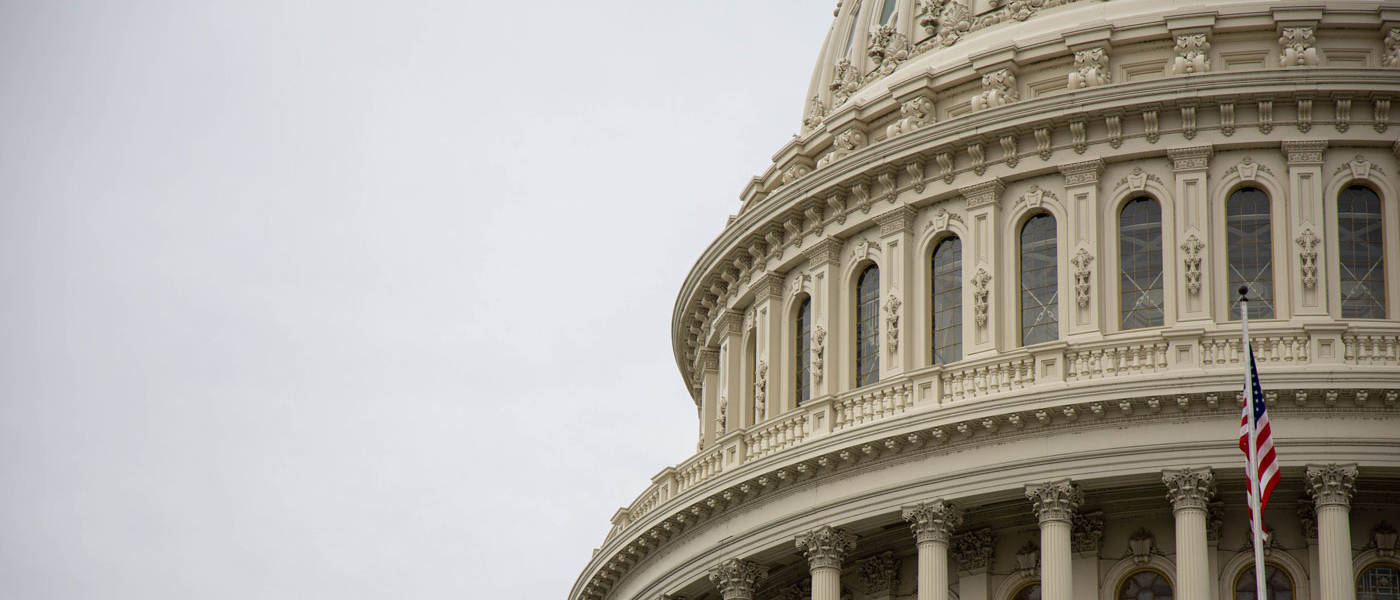
No justice, no peace in healing Trump’s America
Opinion + AnalysisBusiness + LeadershipPolitics + Human Rights
BY Simon Longstaff 21 JAN 2021
What fate should be reserved for Donald Trump following his impeachment by the US House of Representatives for his role in inciting insurrection?
Trump’s rusted-on supporters believe him to be without blame and will continue to lionise him as a paragon of virtue. Trump’s equally rusted-on opponents see only fault and wish him to be ground under the heel of history.
However, there is a large body of people who approach the question with an open mind – only to remain genuinely confused about what should come next.
On the one hand, there is an abiding fear that punishing Trump will fan the flames that animate his angry supporters elevating Trump’s status to that of ‘martyr-to-his-cause’. Rather than bind wounds and allow the process of healing to begin, the divisions that rend American society will only be deepened.
On the other hand, people believe that Trump deserves to be punished for violating his Oath of Office. They too want the wounds to be bound – but doubt that there can be healing without justice. Only then will people of goodwill be able to come together and, perhaps, find common ground.
There is merit in both positions. So, how might we decide where the balance of judgement should lie?
To begin, I think it unrealistic to hope for the emergence of a new set of harmonious relationships between the now three warring political tribes, the Republicans, Democrats and Trumpians. The disagreements between these three groups are visceral and persistent.
Rather than hope for harmony, the US polity should insist on peace.
Indeed, it is the value of ‘peace’ that has been most significantly undermined in the weeks since the Presidential election result was called into question by Donald Trump and his supporters. Rather than anticipate a ‘peaceful transition of power’ – which is the hallmark of democracy – the United States has been confronted by the reality of violent insurrection.
As it happens, I think that President Trump’s recent conduct needs to be evaluated against an index of peace – not just in general terms but specifically in light of what occurred on January 6th when a mob of his supporters, acting in the President’s name, broke into and occupied the US Capitol buildings – spilling blood and bringing death inside its hallowed chambers.
There is a particular type of peace that can be traced back to the Anglo-Saxon legal codes that provide the foundation for many of the laws we take for granted today. The King’s Peace originally applied to the monarch’s household – not just the physical location but also the ruler, their family, friends and retainers. It was a serious crime to disturb the ‘King’s Peace’. Over time, the scope of the King’s Peace was extended to cover certain times of the year and a wider set of locations (e.g. all highways were considered to be subject to fall under the King’s jurisdiction). Following the Norman Conquest, there was a steady expansion of the monarch’s remit until it covered all times and places – standing as a general guarantee of the good order and safety of the realm.
The relevance of all of this to Donald Trump lies in the ethical (and not just legal) effect of the King’s Peace. Prior to its extension, whatever ‘justice’ existed was based on the power of local magnates. In many (if not most places) disputes were settled on the principle of ‘might was right’.
The coming of the King’s Peace meant that only the ruler (and their agents) had the right to settle disputes, impose penalties, etc. The older baronial courts were closed down – leaving the monarch as the fountainhead of all secular justice. In a nutshell, individuals and groups could no longer take the law into their own hands – no matter how powerful they might be.
These ideas should immediately be familiar to us – especially if we live in nations (like the US and Australia) that received and have built upon the English Common Law. It is this idea that underpins what it means to speak of the Rule of Law – and everything, from the framing of the United States Constitution to the decisions of the US Supreme Court depend on our common acceptance that we may not secure our ends, no matter how just we think our cause, through the private application of force.
As should by now be obvious, those who want to forgive Donald Trump for the sake of peace are confronted by what I think is an insurmountable paradox. Trump’s actions fomented insurrection of the kind that fundamentally broke the peace – indeed makes it impossible to sustain. The insurrectionists took the law into their own hands and declared that ‘might is right’ … and they did so with the encouragement of Donald Trump and those who stood by him and whipped up the crowd in the days leading up to and on that fateful day when the Capitol was stormed.
There literally can be no peace – and therefore no healing – unless the instigators of this insurrection are held to account.
Finally, this is not to say that Donald Trump must suffer his punishment. There is no need for retribution or a restoration, through suffering, of a notional balance between ‘right’ and ‘wrong’. It may be enough to declare Donald Trump guilty of the ‘high crime and misdemeanour’ for which he was impeached. And if he remains without either shame or remorse, then it may also be necessary to protect the Republic from him ever again holding elected office – not to harm him but, instead, to protect the body politic.
Given all of this, I think that healing is possible … but only if built on a foundation of peace based on justice without retribution.
Ethics in your inbox.
Get the latest inspiration, intelligence, events & more.
By signing up you agree to our privacy policy
You might be interested in…
Opinion + Analysis
Politics + Human Rights, Relationships, Society + Culture
You won’t be able to tell whether Depp or Heard are lying by watching their faces
Opinion + Analysis
Business + Leadership
Getting the job done is not nearly enough
Opinion + Analysis
Business + Leadership, Politics + Human Rights, Society + Culture
Corruption, decency and probity advice
Opinion + Analysis
Politics + Human Rights
COP26: The choice of our lives
BY Simon Longstaff
Simon Longstaff began his working life on Groote Eylandt in the Northern Territory of Australia. He is proud of his kinship ties to the Anindilyakwa people. After a period studying law in Sydney and teaching in Tasmania, he pursued postgraduate studies as a Member of Magdalene College, Cambridge. In 1991, Simon commenced his work as the first Executive Director of The Ethics Centre. In 2013, he was made an officer of the Order of Australia (AO) for “distinguished service to the community through the promotion of ethical standards in governance and business, to improving corporate responsibility, and to philosophy.” Simon is an Adjunct Professor of the Australian Graduate School of Management at UNSW, a Fellow of CPA Australia, the Royal Society of NSW and the Australian Risk Policy Institute.
Ethics Explainer: Liberalism

Ethics Explainer: Liberalism
ExplainerBusiness + LeadershipPolitics + Human Rights
BY Dr Tim Dean 18 JAN 2021
Liberalism is founded on the belief that individual freedom should be the basis of a just society.
Who should decide how you live your life: where you reside; what career you choose; whom you can marry; and which gods you worship? Should it be your parents? Or your religious or community leaders? Should it be determined by the circumstances of your birth? Or perhaps by your government? Or should you ultimately be the one to decide these things for yourself?
If you answered the latter, then you’re endorsing the values of liberalism, at least in the broadest sense. Liberalism is, at its heart, the belief that each individual person has moral priority over their community or society when it comes to determining the course of their life.
This primacy of individual freedom and self-determination might seem self-evident to people living in modern liberal democracies, but it is actually a relatively recent innovation.
The Birth of Liberalism
In most societies throughout history and prehistory, one’s beliefs, values and social role were imposed on them by their community. Indeed, in many societies since agricultural times, people were considered to be the property of their parents or their rulers, with next to no-one having genuine freedom or the power of self-determination.
Brave (or foolhardy) was the medieval serf who took it upon themselves to defy their local church to practice their own religion, or defy their family tradition to seek out their dream job, or defy their clan to marry whomever their heart desired.
The seeds of modern liberalism were planted in England in the 13th century with the signing of the Magna Carta, which weakened the unilateral power of the King over his minions. This started a process that eventually enshrined a number of individual rights in English law, such as a right to trial by jury and equality before the law.
Soon even rulers – whether monarch or government – came to receive their legitimacy not from divine authority, tradition or fiat but from the will of the people. If the rulers didn’t operate in the interests of the people, the people had the right to strip that legitimacy from them. This made democracy a natural fit for nations with liberal sensibilities.
The other motivating force for liberalism was the horrifically destructive religious wars that wracked Europe after the Reformation, culminating in the Peace of Westphalia in 1648. Given the millions of lives lost due to religious and ideological differences, many people came to see that tolerance of different beliefs and religious practices might be a better alternative to imposing one’s beliefs on others by force.
Modern Liberalism
Liberalism was fleshed out as a comprehensive political philosophy by thinkers such as Thomas Hobbes, Jean-Jacques Rousseau, John Locke and John Stuart Mill, and more recently by John Rawls. While they differed in their emphases and recommendations, all liberal thinkers were committed to the core idea that individuals were – and ought to be – fundamentally free to live as they choose.
Philosopher John Locke argued that liberalism stemmed from our very nature, arguing that all people are essentially in “a state of perfect freedom to order their actions, and dispose of their possessions and persons as they think fit, within the bounds of the law of Nature, without asking leave or depending upon the will of any other man.”
Most liberal thinkers argued that individual freedom should only be limited in very special circumstances.
One of those limitations was not impinging upon the freedom of others to live according to their own beliefs and values, hence the importance of tolerance and preventing harm against others. As they say, your freedom to swing your arm ends where another person’s nose begins.
One common theme of liberalism is the importance of free speech. John Stuart Mill, for example, argued that each individual ought to be able to seek the truth for themselves rather than being obliged to accept the views imposed on them by authorities or tradition.
And in order to seek truth, they need to be able to explore, express and interrogate all beliefs and arguments. And the only way to do that was to allow wide-ranging free speech. “There ought to exist the fullest liberty of professing and discussing, as a matter of ethical conviction, any doctrine, however immoral it may be considered,” he wrote.
This freedom of speech should be limited only in very particular circumstances, such as when that speech is likely to cause direct harm to others. So shouting “fire” in a packed theatre when no such fire exists is an abuse of free speech.
This “harm principle” is still a topic of considerable debate amongst liberals and their opponents, especially around what ought to be considered sufficient harm to justify suppressing speech.
Other liberal thinkers emphasised the fact that not every person was equally able to exercise their freedom through no fault of their own. Poverty, sexism, racial discrimination and other systemic barriers mean that freedom and power are unequally distributed.
This led to what is often called “social justice” liberalism, which seeks to remove those social barriers and enable all people to exercise their freedom to the fullest extent. Some focused on economic redistribution, such as the liberal socialists, while others focused on social barriers, like feminists and anti-discrimination campaigners.
Ethics in your inbox.
Get the latest inspiration, intelligence, events & more.
By signing up you agree to our privacy policy
You might be interested in…
Opinion + Analysis
Business + Leadership, Politics + Human Rights
Australia is no longer a human rights leader
Opinion + Analysis
Business + Leadership
Risky business: lockout laws, sharks, and media bias
Opinion + Analysis
Business + Leadership
Despite codes of conduct, unethical behaviour happens: why bother?
Opinion + Analysis
Business + Leadership
How ‘ordinary’ people became heroes during the bushfires
BY Dr Tim Dean
Dr Tim Dean is Philosopher in Residence at The Ethics Centre and author of How We Became Human: And Why We Need to Change.
Berejiklian Conflict
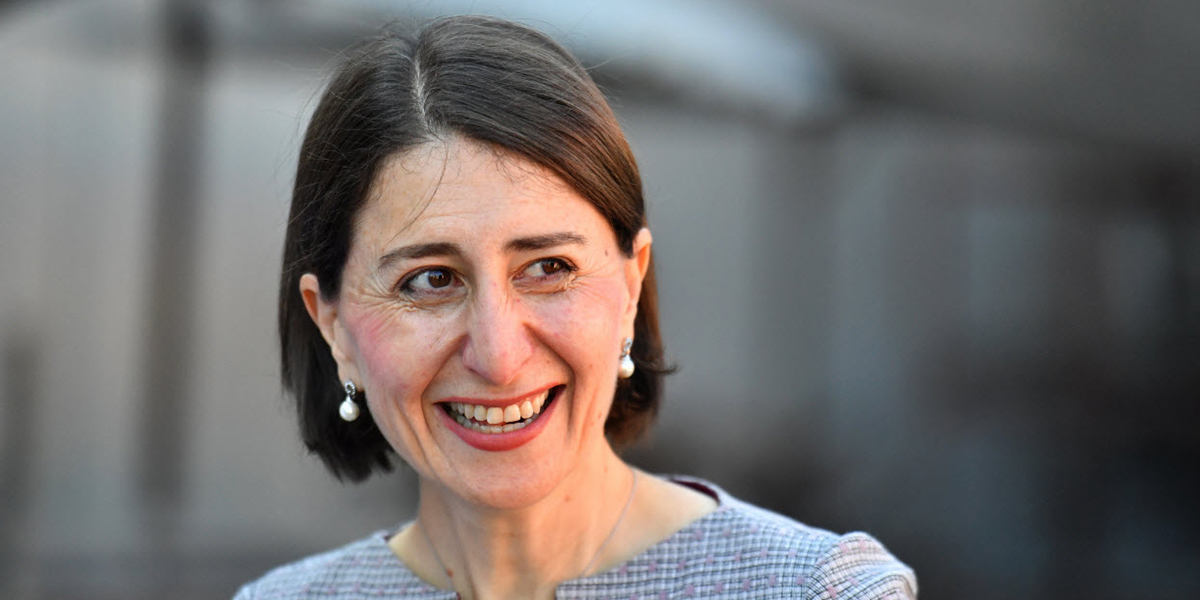
Berejiklian Conflict
Opinion + AnalysisBusiness + LeadershipPolitics + Human Rights
BY Simon Longstaff 14 OCT 2020
The next phase in the political life of NSW Premier, Gladys Berejiklian, depends on answers to three questions.
First, was her former relationship with Daryl Maguire not just ‘close’ but, in fact, an “intimate personal relationship”? Second, did the Premier make or participate in any decisions that could reasonably be expected to confer a private benefit on Mr Maguire? Finally, if the answer is ‘yes’ to each of these questions, then did Ms Berejiklian declare her interest in the Ministerial Register of Interests and seek the permission of Cabinet to continue to act?
Nothing else matters – not the Premier’s choice of friends, not her judgement … only the answer to those three questions.
The reason for this can be found in the NSW Ministerial Code of Conduct (the Ministerial Code) which has the force of Law. As might be expected, the Ministerial Code imposes obligations that are in addition to and are more onerous than, those applying to Members of Parliament.
The Preamble to the Ministerial Code of Conduct says, amongst other things, that, “In particular, Ministers have a responsibility to avoid or otherwise manage appropriately conflicts of interest to ensure the maintenance of both the actuality and appearance of Ministerial integrity.” With that end in mind, the Code not only takes account of the personal interests of individual Ministers – but also those of members of their families. It is here that the precise nature of the Premier’s relationship with Mr Maguire risks becoming a matter of public, rather than personal, interest. This is because the Ministerial Code of Conduct defines a “family member”, in relation to a Minister, as including, “any other person with whom the Minister is in an intimate personal relationship”.
‘Intimate’ is not a word used in the ICAC hearing to describe the Premier’s relationship with Mr Maguire.
Instead, it was agreed that theirs had been a “close personal relationship” – the precise nature of which was never explained. However, the evidence suggested that the words ‘close’ and ‘intimate’ may have been synonymous. If so, then Mr Maguire will have fallen within the definition of ‘family member’ during the period of his relationship with the Premier.
However, this (in itself) is neither here nor there. The nature of Ms Berejiklian’s relationship with Mr Maguire was (and should have remained) an entirely private matter up until the point where the Premier became involved in any Ministerial decision that “could reasonably be expected to confer a private benefit” on Mr Maguire. Only then did the public interest become engaged.
So, did any such decisions come before the Premier (acting alone or in Cabinet) during the period of her relationship with Mr Maguire? And if so, did she declare her interest as she is required to do under the Ministerial Code? The matter would then have been in the hands of her Cabinet colleagues as the final provision of the Code states that, “a ruling in respect of the Premier may be given if approved by the Cabinet”.
The Premier obviously knew something of Mr Maguire’s hopes and plans – even if she thought them to be fanciful. She knew of his financial exposure and the material impact that NSW Government decisions might have on his personal wealth. We also know that, for a time, Mr Maguire was at the centre of the Premier’s private affections. The issue is not that the Premier would have acted against the public interest for the benefit of Mr Maguire. I sincerely doubt that she would ever do so. It is most importantly a question of what was done to ensure the maintenance of both the actuality and appearance of Ministerial integrity.
The Premier had a formal obligation to declare her relationship with Mr. Maguire if, a) it was intimate, b) she was involved in deciding any matter that could reasonably be expected to confer a private benefit on him. It was then up to her Cabinet colleagues to rule on how she should proceed from there. Beyond settling these questions, the public has no legitimate interest in the private life of Gladys Berejiklian – except, perhaps, to extend to her our sympathy if she has been drawn inadvertently into a web of grief spun by a former friend.
Ethics in your inbox.
Get the latest inspiration, intelligence, events & more.
By signing up you agree to our privacy policy
You might be interested in…
Opinion + Analysis
Business + Leadership
Our economy needs Australians to trust more. How should we do it?
Reports
Business + Leadership
Ethics in the Boardroom
Opinion + Analysis
Business + Leadership, Relationships
Corporate whistleblowing: Balancing moral courage with moral responsibility
Explainer
Business + Leadership



